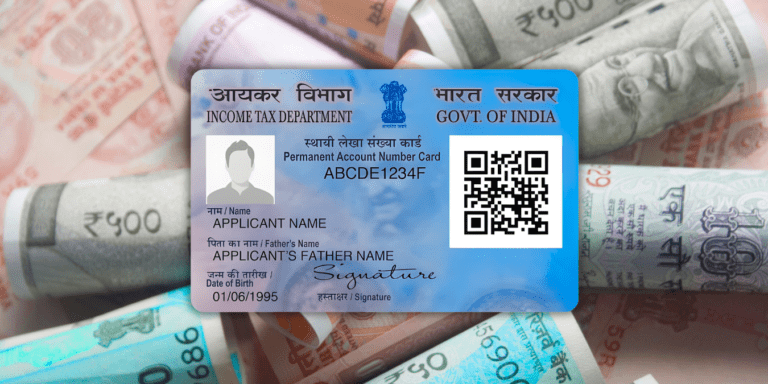
Why India’s Top Courts Forced CBDT to Extend Tax Audit Deadlines in 2025? Discover Who Gains Big!
Why the CBDT’s shocking 2025 tax audit deadline extension is a game-changer for businesses and taxpayers alike. Unlock the hidden benefits, avoid costly penalties, and learn how this surprising move could save you time and stress—plus the one crucial detail everyone’s overlooking. Don’t miss out!
In a surprising yet smart move that has caught the attention of taxpayers across India; the Central Board of Direct Taxes (CBDT) extended the income tax audit deadline for the assessment year (AY) 2025-26. If you thought October 31 was the final day to file your tax audit report and income tax return (ITR), think again — the deadline has now been pushed well into December, giving taxpayers a much-needed breather. But why this extension, who benefits the most, and what hidden opportunities does it hold? Let’s uncover the full story behind this shocking extension and why it could be your secret to hassle-free tax compliance this year.
The Big Deadline Extension: What’s New?
Originally, the last date to file tax audit reports for FY 2024-25 and ITRs for AY 2025-26 was October 31, 2025. However, the CBDT has now extended:
- The tax audit report deadline to November 10, 2025
- The ITR filing deadline for audited cases to December 10, 2025
This creates a smart one-month gap between the audit report submission and ITR filing, which was a key demand from taxpayers and professionals alike. The extension directly addresses practical realities, making the compliance process smoother and more manageable.
Examples of Challenges Faced Under the Original Deadlines
Under the original tight deadlines for tax audit report submission and income tax return (ITR) filing, taxpayers and professionals faced several notable challenges:
- Compressed Timeframe Between Audit and ITR Filing
With both deadlines often very close—sometimes the same date or just a few days apart—taxpayers had little time to finalize audit reports before filing their ITRs. This led to rushed filings and increased errors. - Increased Risk of Penalties for Delays or Mistakes
The tight schedule left limited opportunity to correct mistakes or gather additional documents, raising the risk of penalties for non-compliance or inaccurate reporting. - High Workload Pressure on Chartered Accountants
CAs faced a surge in workload with many audit reports and ITRs to prepare and submit simultaneously, causing burnout and mistakes. - Operational Disruptions Impacting Timely Compliance
Natural calamities such as floods, strikes, or logistical problems in certain regions made it difficult for affected taxpayers and businesses to meet the earlier deadlines. - Lack of Statutory Gap Leading to Legal Confusion
Several High Courts cited the absence of a reasonable gap between audit and filing deadlines as unjust, leading to conflicting legal rulings and uncertainty for taxpayers. - Complexity Due to Growing Digital Transactions
The increasing complexity of audits, driven by digital transactions and GST integrations, required more time for accurate reconciliation, which was not feasible under the original compressed timeline.
These challenges highlighted the pressing need for the CBDT’s deadline extension to provide taxpayers and professionals a more realistic, manageable timeframe for compliance.
Why Did CBDT Extend the Deadline? The Real Story
The CBDT’s decision was not made in isolation but followed a wave of petitions and rulings from multiple High Courts, including the Gujarat, Punjab & Haryana, Himachal Pradesh, Karnataka, and Rajasthan High Courts. These courts recognized the challenges taxpayers and their auditors were facing and advocated for a statutory gap of at least one month between audit report submission and ITR filing.
The CBDT extended the income tax audit and ITR filing deadlines primarily due to several key reasons:
- Judicial Mandates from High Courts: Multiple High Courts, including those in Gujarat, Punjab & Haryana, Himachal Pradesh, Karnataka, and Rajasthan, ruled that a reasonable statutory gap of at least one month should exist between the tax audit report submission deadline and the income tax return filing deadline. The courts recognized the practical difficulties in meeting both deadlines simultaneously or too close together.
- Delays in Audit Report Preparation: There have been delays in issuing audit forms and preparing audit reports, which require additional time for accurate completion. This delay also affects the timely filing of ITRs, which depend on finalized audit reports.
- Operational and Natural Disruptions: Some taxpayers and businesses faced disruptions due to natural calamities like floods or other operational challenges, making it difficult to meet the original tight deadlines.
- Avoiding Compliance Pressure: Overlapping compliance deadlines were causing undue pressure on taxpayers and Chartered Accountants, leading to rushed filings and potential errors or penalties. The extension aims to reduce this compliance burden.
Overall, the CBDT's extension reflects a move towards more taxpayer-friendly, practical, and legally compliant tax administration that balances regulatory requirements with real-world challenges faced by taxpayers and professionals.
Who Stands to Benefit the Most?
1. Businesses and Professionals Under Audit Mandate
Companies, firms, and individuals who must undergo a tax audit under Section 44AB of the Income Tax Act receive the biggest relief. They now have:
- Extra time to get their accounts audited accurately without rushing.
- The ability to avoid costly penalties for late or erroneous filings.
- A convenient one-month window to file ITR after audit report submission.
2. Chartered Accountants and Tax Consultants
The extension lightens workload pressure, offering professionals a smart chance to double-check audit reports and ITRs, thus reducing mistakes and audit objections.
3. Startups and MSMEs
Startups and small businesses, which often face resource constraints during tax season, can now use the extra days to streamline their financial documents and tax filings.
4. Taxpayers Facing Natural or Operational Disruptions
Companies affected by floods, strikes, or other operational hurdles gain practical respite, enabling them to comply without stress.
Implications for Indian Tax Compliance
The extension underscores an evolving tax administration that is becoming more taxpayer-friendly and adaptable. The CBDT’s move:
- Encourages accurate reporting over rushed, error-prone compliance.
- Enables digital and automated audit processes to catch up.
- Reflects growing judicial oversight ensuring statutory timelines are fair and practical.
Suggest Best Practices to Manage Tax Filings Under the New Timeline
To manage tax filings efficiently under the CBDT’s new extended timeline, adopting these best practices can help ensure smooth compliance and avoid last-minute problems:
- Plan and Prioritize Early: Start your audit preparations well in advance. Use the extra time wisely by setting clear milestones for completing books of accounts, audit reports, and ITRs.
- Engage Your Chartered Accountant Early: Collaborate closely with your CA or tax consultant from the start to address any financial complexities and avoid last-minute surprises.
- Utilize the One-Month Gap Strategically: Submit the tax audit report by the November 10 deadline, then carefully review the report before filing your ITR by December 10. This gap helps ensure accuracy and enables corrections if needed.
- Maintain Organized Financial Records: Keep all supporting documents, invoices, and statements updated and easily accessible to facilitate a quick and error-free audit process.
- Leverage Digital Filing and E-Verification: Use online portals efficiently for submitting audit reports and ITRs. Complete e-verification promptly to avoid processing delays or penalties.
- Stay Updated with CBDT Notifications: Monitor official CBDT circulars and High Court orders until the deadlines pass, as further changes or clarifications may be issued.
- Plan for Contingencies: Account for possible operational disruptions or paperwork delays by using the extended deadlines as a buffer, not an excuse to delay.
- Avoid Last-Minute Filings: Filing close to the deadline can increase errors and rejection risks. Aim to complete filings at least a few days before the extended deadlines.
By following these practical steps, taxpayers and professionals can maximize the benefits of the extended timeline, ensuring timely and accurate compliance with minimal stress or penalties.
Real-World Example: The Gujarat High Court’s Role
The Gujarat High Court’s directive was a game-changer. The court responded to the Income Tax Bar Association’s plea stating that taxpayers deserve at least a month gap between audit and return filing for smooth compliance. This judicial push led to the CBDT’s official deadline extension, setting a precedent for taxpayer relief driven by legal intervention.
Trending Insight: Growing Audit Compliance Complexity
With growing financial transactions and regulatory demands — including digital transactions and GST linkage to income tax — audits are more complex than ever. Experts see deadline extensions like these as a future trend to keep pace with evolving tax ecosystems.
Key Takeaways
- CBDT extended tax audit deadline to Nov 10 and ITR deadline to Dec 10 for AY 2025-26.
- Extension follows demands and rulings by multiple High Courts for a fair one-month gap.
- Benefits companies, professionals, startups, and taxpayers affected by disruptions.
- Reflects a more taxpayer-friendly, adaptable, and judicially guided tax compliance system.
- Taxpayers should use the additional time to file accurate audits and ITRs, avoiding penalties.
Final Thought
The tax deadline extension is more than just a calendar update — it signals a smart shift in India’s tax landscape, balancing compliance rigor with taxpayer convenience. Could this be the start of more flexible tax rules tailored to real-world business challenges? As digitalization and legal advocacy grow, understanding these hidden dynamics might just give you a strategic edge in managing your taxes effectively. Stay tuned to uncover the smart moves the CBDT might unveil next and how you can turn these changes into your tax-time advantage.
































